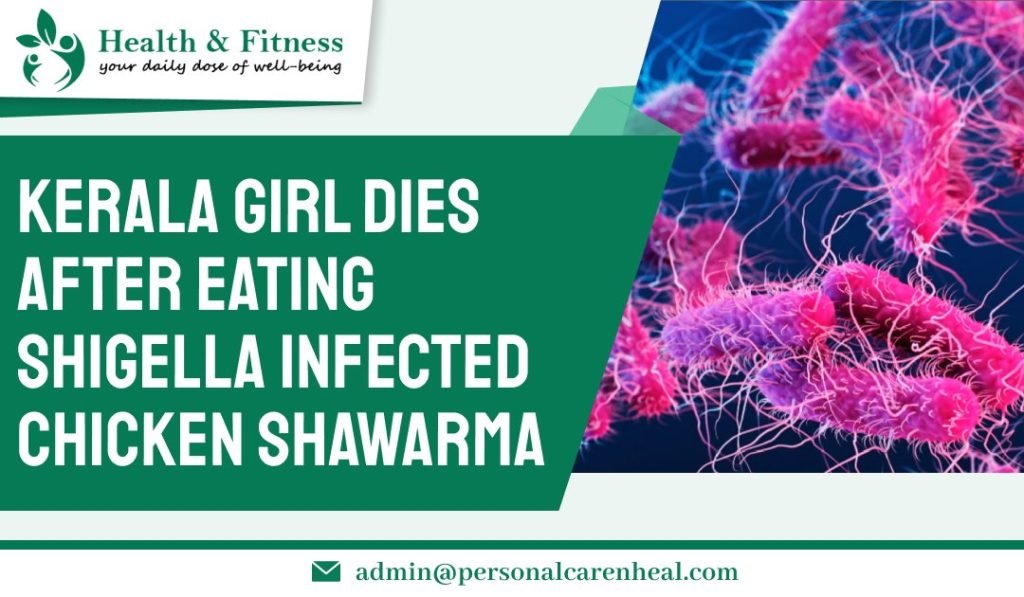The state Health Department has identified the cause of the tragedy—the Shigella bacteria—following the death of a 16-year-old and the hospitalization of over 40 people in Kerala due to food poisoning. People who were admitted after eating chicken shawarma had the Shigella bacteria confirmed in their blood and feces.
What is Shigella?
- Shigellosis (Shigella infection) is an intestinal infection caused by the shigella bacteria family. The most common symptom of shigella infection is bloody diarrhea.
- Shigella is highly infectious. When people come into contact with and swallow small amounts of bacteria from a shigella-infected person’s stool, they become infected with shigella.
- For an instance, this can occur in a childcare setting when staff members do not thoroughly wash their hands after changing diapers or assisting toddlers with toilet training. Shigella bacteria can also be spread through contaminated food, as well as through drinking or swimming in contaminated water.
- Shigella infection is most common in children under the age of five, but it can strike anyone at any age. A mild case will usually go away on its own after a week. Antibiotics are commonly prescribed by doctors when treatment is required.
What are the Symptoms of Shigella?
Shigella infection symptoms usually appear a day or two after contact with the bacteria. However, development could take up to a week. The following are possible signs and symptoms:
- Fever
- Nausea or Vomiting
- Diarrhea (Often Containing Mucus or Blood)
- Stomach Pain or Cramps
Symptoms usually last between five and seven days. Symptoms may last longer in some cases. After being contaminated with shigella, some people experience no symptoms. However, their feces may remain infectious for several weeks.
When to Consult Doctor?
If you or your child has bloody diarrhea or diarrhea severe enough to cause weight loss and dehydration, call your doctor or go to the nearest emergency room. If you or your child has diarrhea and a fever of 1010 F (380 C) or higher temperature then consult with your doctor.
What are the Causes of Shigella?
When you swallow shigella bacteria by accident, you become infected. This can occur if you:
- Touching Your Mouth: The disease is most commonly spread through direct contact with people. For example, if you do not wash your hands thoroughly after changing a shigella-infected child’s diaper, you risk becoming infected.
- Eating Contaminated Food: People who handle food and who are infected can pass the bacteria on to those who eat it. If food is grown in a field with sewage, it can become infected with shigella bacteria.
- Drinking contaminated water: Water can be contaminated with shigella bacteria from sewage or a shigella-infected person swimming in it.
What are the Risk Factors of Shigella?
- Being a Child: Shigella infection is most common in children under the age of five. On the other hand, it can also infect people of any age.
- Participating in Group Activities or Living in Group Housing: Bacteria spread from person to person when people are in close proximity. In child care centers, community wading pools, jails, nursing homes, and military barracks, Shigella outbreaks are more common.
- Living or Travelling in an Unsanitary Environment: Shigella infection is more common in people who live or travel in developing countries.
- Being a Man Who Engages in Sex with Other Men: Because of direct or indirect oral-anal contact during sexual activity, men who have sex with men are more likely to contract shigella.
What are the Complications Arising During Shigella Infection?
Shigella infection usually goes away without causing any problems. Your bowel habits may take months or weeks to return to normal. Some of the complications are mentioned below:
- Dehydration: Dehydration can be caused by constant diarrhea. Lightheadedness, lack of tears in children, sunken eyes, dizziness, and dry diapers are all signs and symptoms. Dehydration can cause shock and even death.
- Seizures: Seizures can occur in children who have been contaminated with shigella. Seizures are more common in children with a high fever, but they can also happen in children without a fever. It is unclear whether the seizures are caused by the fever or by the shigella infection. Contact your doctor right away if your child has a seizure.
- Infections of the Bloodstream (Bacteremia): Shigella infection can cause damage to the intestine lining. Shigella bacteria can enter the bloodstream and cause a bloodstream infection in rare cases due to a damaged intestinal lining.
How to Prevent Shigella Infection?
Although researchers are still working on a shigella vaccine, none is currently available. To stop shigella from spreading, follow these measures:
- Hands should be washed frequently with soap and water for at least 20 seconds.
- When small children wash their hands, keep an eye on them.
- Dispose of soiled diapers properly.
- After each use, disinfect the diaper-changing area.
- If you have diarrhea, do not cook for others.
- Children with diarrhea should not attend childcare, playgroups, or school.
- Avoid drinking water from untreated ponds, lakes, or pools.
- If you have diarrhea or have recently recovered from diarrhea, avoid sexual activity.
- Wait until you have fully recovered before going swimming.



